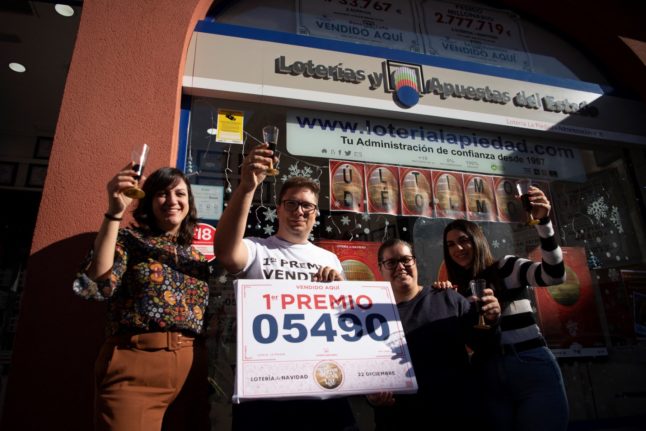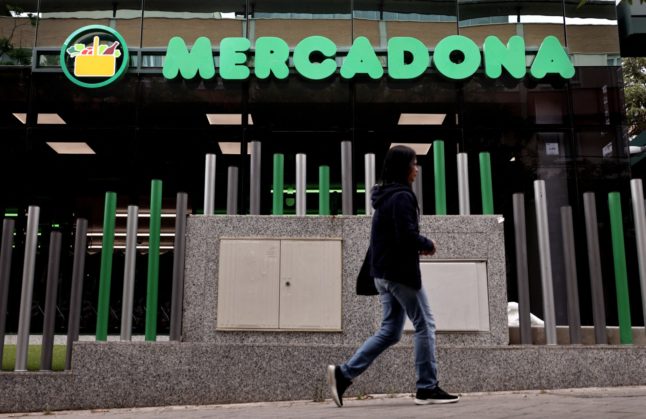Large queues formed outside of kiosks ahead of the nationally televised draw for the Christmas lottery, which features children from the San Ildefonso school — a former home for orphans — singing out the winning numbers and matching prizes.
“I have bought lottery tickets for the whole family, everyone knows I’m coming and they’re taking advantage of it,” said Jose Moreno, who queued for over two hours to buy tickets at Dona Manolita, a tiny shop in central Madrid considered by many to be the luckiest in Spain.
“I bought the same number, so if it is picked we will all win,” the 52-year-old building superintendent, who was visiting from Barcelona and sported a thick black coat and Real Madrid cap to guard against the cold, told AFP.
READ ALSO: El Gordo: Everything you need to know about Spain’s Christmas lottery
Purchasing and sharing €20 tickets, called “decimos”, is a major tradition among families, friends, co-workers and in bars, and in sports and social clubs. The popular state-run lottery will dish out a total of €2.59 billion($2.83 billion), much of it in hundreds of smaller prizes.
Prizes range from €20 — in other words you get your money back — to the €400,000 top prize, known as “El Gordo” or “The Fat One”, which goes to thousands of holders of “decimos” bearing the same winning number.
Other lotteries around the world have bigger individual top prizes but Spain’s Christmas lottery, held each year on December 22, has the most total prize money involved.
Glued to TV
The draw, which gets underway at Madrid’s Teatro Real on Friday at 9 am (0800 GMT), lasts around four hours, bringing Spain to a virtual standstill with people glued to TV sets, radios and computers, waiting to see if they got lucky.
“I buy two ‘decimos’ a year, one for my parents and one for me. We watch the draw at home on TV… and if we win something, we hug each other,” said Karin Arizaca, a 25-year-old Peruvian who studies and works as a shop assistant in Madrid.
Wearing a pink winter coat, Arizaca also waited for over two hours to buy her tickets at Dona Manolita because it “usually has more luck”.
Scores of resellers set up temporary stands where they sell tickets originally purchased at Dona Manolita at a small markup.
“The queue is very long, so I decided to pay €2 more for each ‘decimo’,” said Daniel Gomez, a 70-year-old pensioner from the southern city of Granada after he bought tickets from one such vendor.
Celebrations
Throughout the day of the draw, television stations broadcast live images of winners across the country celebrating with cheers, hugs and sparkling wine.
The lottery often produces heart-warming stories, such as in 2017 when 22 workers at a retirement home in a struggling town each had at least one “decimo” bearing the winning number for the top prize of €400,000.
Tickets go on sale in July and many Spaniards like to buy a “decimo” in the seaside resort or town where they spend their summer holidays.
Spaniards spent an average of €67.11 on tickets for the Christmas lottery last year, according to Spain’s state lottery firm that organises the draw. It raises around €1 billion a year for public coffers.
The Christmas lottery has been held uninterrupted since 1892. Even Spain’s 1936-39 civil war did not end it, as each side held its own draw during the conflict.



 Please whitelist us to continue reading.
Please whitelist us to continue reading.
Member comments